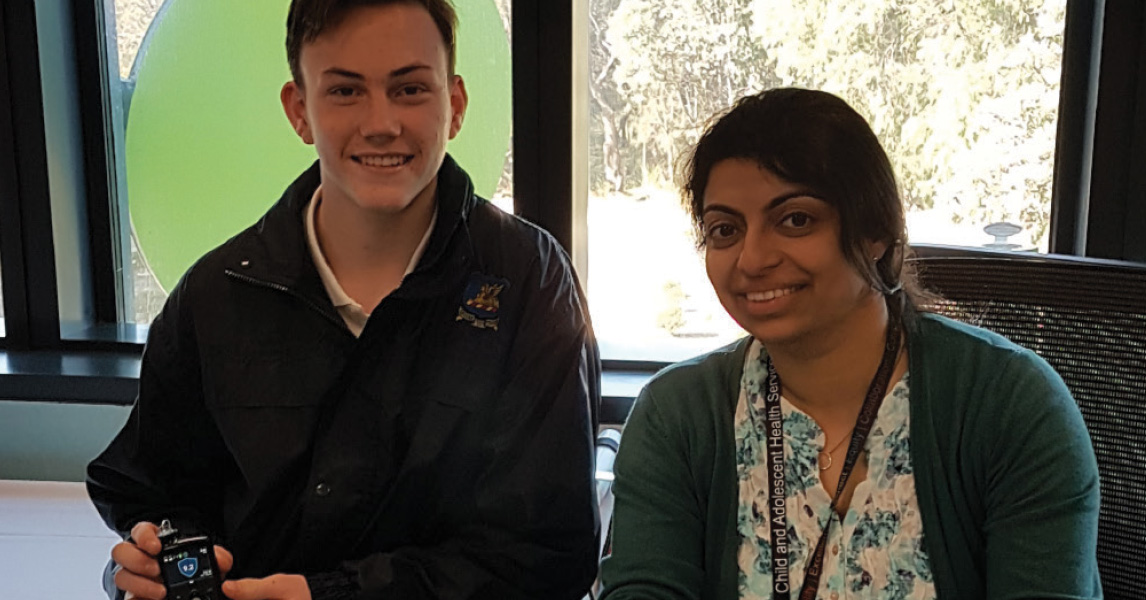Search
Showing results for "1"

One hundred years after the discovery of insulin, technology advancements are being heralded as the dawn of a new era for managing type 1 diabetes (T1D) in young people.

Imagine you had a healthy daughter one day and the next being told she has an incurable condition that requires day-to-day care and insulin treatment to stay alive.
Research
Updates in infant acute lymphoblastic leukemia and the potential for targeted therapyOutcomes for infants diagnosed under 1 year of age with KMT2A-rearranged acute lymphoblastic leukemia (ALL) have remained stagnant over the past 20 years. Successive treatment protocols have previously focused on intensification of conventional chemotherapy, but increased treatment-related toxicity and chemoresistance have led to a plateau in survival.
Research
Enhancing functional recovery for young people recovering from first episode psychosis via sport-based life skills training: outcomes of a feasibility and pilot studyEarly intervention within First Episode Psychosis (FEP) recovery efforts support functional recovery in several ways, including increasing levels of (1) physical activity (2) life skills, and (3) social connectivity. Sport has been proposed as an ideal platform to target these three goals simultaneously.
Research
Fetal alcohol spectrum disorder: Development of consensus referral criteria for specialist diagnostic assessment in AustraliaThe use of standard methods to identify when to refer individuals who may have FASD for specialist assessment could help improve the identification of this...
Research
Long-term medical and psychosocial outcomes in congenital diaphragmatic hernia survivorsSurvivors of CDH may have significant adverse long-term medical and psychosocial issues that would be better recognised and managed in a multidisciplinary clinic
Research
Characteristics of Automated Insulin Suspension and Glucose Responses with the Predictive Low-Glucose Management SystemLonger suspends and fewer glycemic excursions occur at night compared with day
Research
A 10-second sprint does not blunt hormonal counter-regulation to subsequent hypoglycaemiaA 10-second sprint is unlikely to blunt the subsequent hormonal counter-regulation to hypoglycaemia in individuals with Type 1 diabetes
Research
Early lung surveillance of cystic fibrosis: what have we learnt?Newborn screening (NBS) for cystic fibrosis (CF) provides an opportunity to commence management and therapeutic interventions significantly earlier
Research
Exploration of the Performance of a Hybrid Closed Loop Insulin Delivery Algorithm That Includes Insulin Delivery Limits Designed to Protect Against HypoglycemiaThe algorithm that was tested against moderate exercise and an overreading glucose sensor performed well in terms of hypoglycemia avoidance
